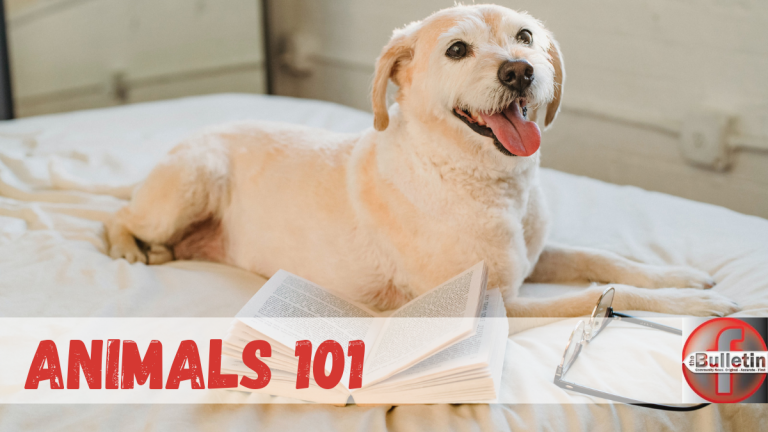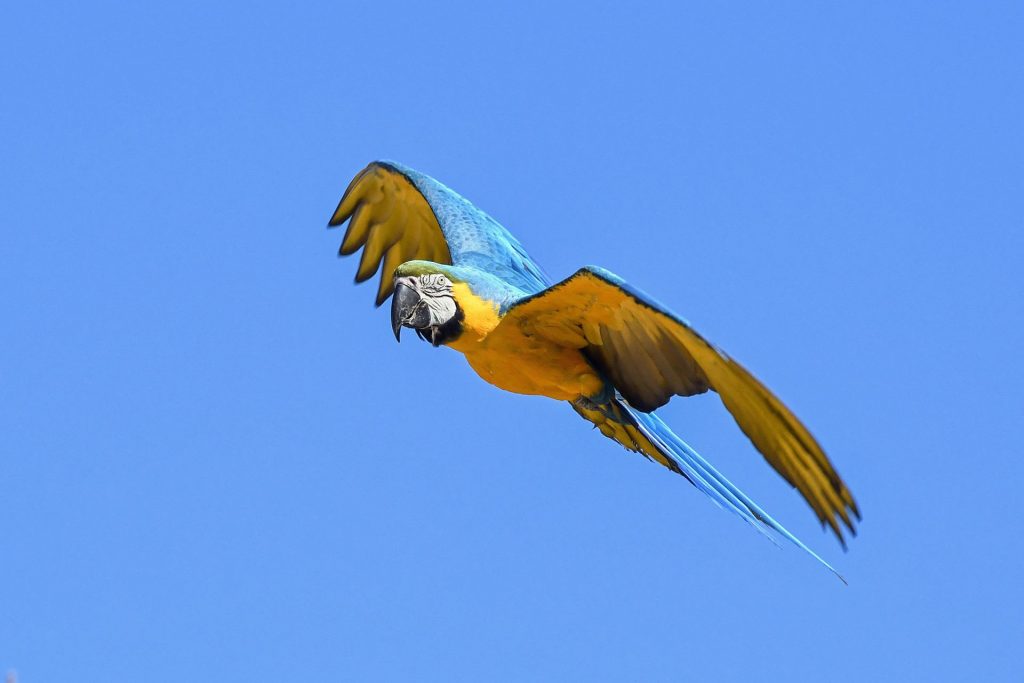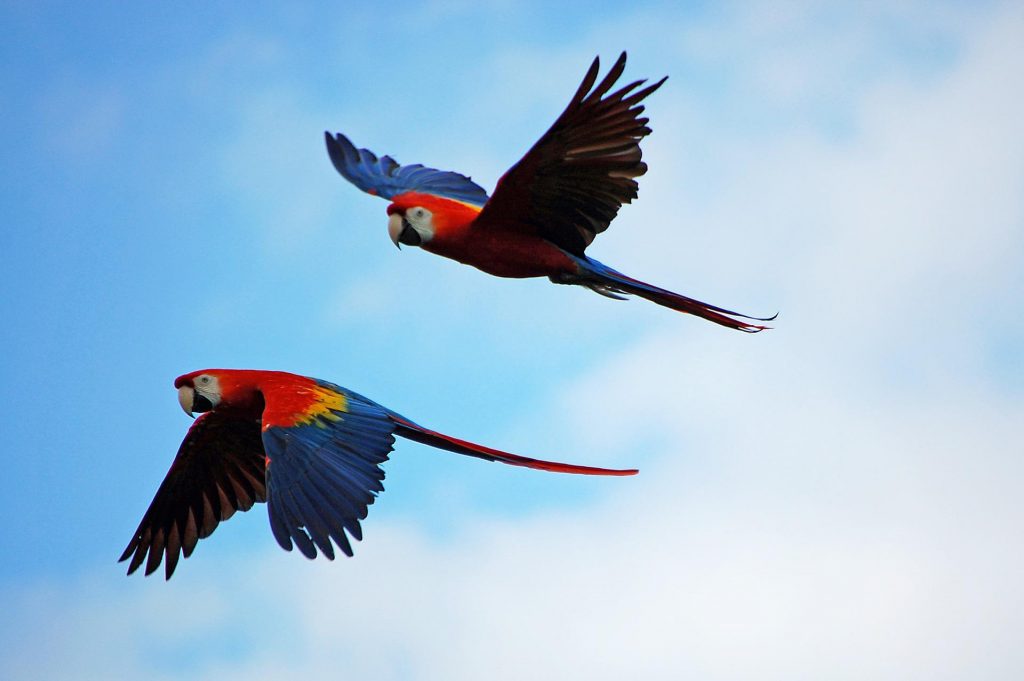
ANIMALS OF THE AIR SHOULD NOT HAVE THEIR WINGS CLIPPED!
We have recently seen so many lost pet birds in our area and last week we looked at what you can do to find your missing bird. One thing that bird owners consider to prevent escape is clipping the wings. Although there are usually two sides to any issue and this is a controversial topic, wing clipping is not something I support and I will share why.
In short, birds are creatures of the air with some parrots in the wild often flying 30 miles per day. They are not animals that are meant to be grounded or caged. One of the five freedoms of animal welfare includes the freedom to express natural behaviour and for me, taking away the ability to fly effectively, by clipping their wings, is cruel! By doing this you force this animal to be dependent on you and mostly perch or cage bound. The experience is also very traumatizing for birds as they have an innate desire and need to fly.
Wing clipping may not necessarily be permanent, but this will depend on the type of bird, their health and what techniques are used for clipping. Bird specialist Dr. Pat says that there is not a single generic style that is suitable for all situations. The type of bird, their weight, athletic ability, agility, lifestyle and more, play a role. There are certain methods of trimming a bird’s wings that allow them to glide, not fly, although it is no guarantee.
I asked a parrot rescue and rehabilitation organization that takes in many of these mostly abandoned and neglected parrots, for their opinion. The owner agreed that she doesn’t support the clipping of wings, though there might be exceptions. She further shared that they probably have about 40% of birds whose wings have been clipped all their lives, especially from a young age, that sadly can’t use those precious wings to fly anymore. People just assume they would know how to fly.
Our family also took in a parrot that was passed on from one home to another. When we got her, her wings were clipped to the point of permanent damage, so she couldn’t fly anymore and that breaks my heart. This certainly puts her at risk for other potential injuries.

COMMON NEGATIVE EFFECTS
- Chest muscles won’t develop due to their inability to fly.
- When clipped before learning to fly, they may never develop balance, agility and other flight skills.
- Once clipped, many birds have problems regrowing flight feathers.
- You can cut their “blood feathers” if you don’t know what you are doing.
- Birds with clipped wings tend to develop psychological and behavioural problems like feather picking more than other birds. This is most likely due to the frustration they feel when not being able to fly, amongst other reasons. Note that wild birds do not feather pick.
- After being clipped, many birds feel frightened of their human companion and may mistrust them.
- It may lead to injuries from crash landings, like air sac rupture, damaged chests, cuts near the vent and broken bones.
- Inability to escape predator attacks.
WHAT ABOUT THE PROS?
Many articles discuss the pros and cons of wing clipping, however, these assume that the “pros”, usually argued from a safety perspective, can only be attained if the bird’s flight is limited or eliminated by having their wings clipped. An important question may be how safe you can keep your birds if they are flighted.
Here are just a few basic examples from Parrot Volancy about these excuses:
- Windows, glass doors, and mirrors worry many people when discussing flight for birds. It’s an easy concern to address. Birds can learn to safely avoid windows, glass doors, and mirrors if you took the time to teach them. Close curtains when you take them out and make sure doors and windows are closed if this is a concern and they are not yet trained.
- Ceiling fans are dangerous to birds, for obvious reasons. Once we know how important flight is to a bird, we can’t prioritize using a fan with exposed blades over a bird’s natural mobility. There are alternatives.
- Is the kitchen stove a concern? Put your bird in a room with the door closed or in a cage while cooking. Cooking and for example the type of cookware you use can harm birds (pets) anyway.
- As for toilet bowls, keep toilet seats closed.
- Cats and dogs are commonly cited as a household danger but, frankly, it is questionable as to whether one should mix either of these with birds.
- If avoiding bird poop in the house or damaging furniture takes precedence over their well-being then you should seriously reconsider owning a bird.
WHAT ARE OTHER ALTERNATIVES?
Luckily there are better ways that allow your bird to enjoy flying while being safe, it just takes more effort from you. Animal Wised suggests training based on positive reinforcement. You can teach your bird recall and simple commands. They are smart and curious animals who learn quickly. Training will not only challenge and entertain them, but it will also strengthen your relationship with them and improve communication. Many bird companions even take part in free flights, as they’ve trained their birds very well. You can also “bird-proof” your home or consider using a safe and certified flight harness, until they are trained.
READ MORE on how to find your missing parrot.
If you are going to clip their wings it must be done by a qualified professional who knows the species, the different techniques and understands how to evaluate individual health. We suggest avian vets or exotic pet vets and it should also not be done at a young age.
If you’ve previously clipped your bird’s wings but now want them to recover and be able to fly, first you must give them time to regrow all of their natural feathers. Once they can regrow their feathers, they must learn or re-learn how to fly. Be patient with your bird through this process.
Wing clipping is not a procedure to be taken lightly. There are better ways to keep them safe while respecting their rights, freedom and needs.
With the holidays coming up, we will look at some safety tips for your animals in next week’s edition. Stay warm!
WHEN YOU KNOW BETTER, DO BETTER!
